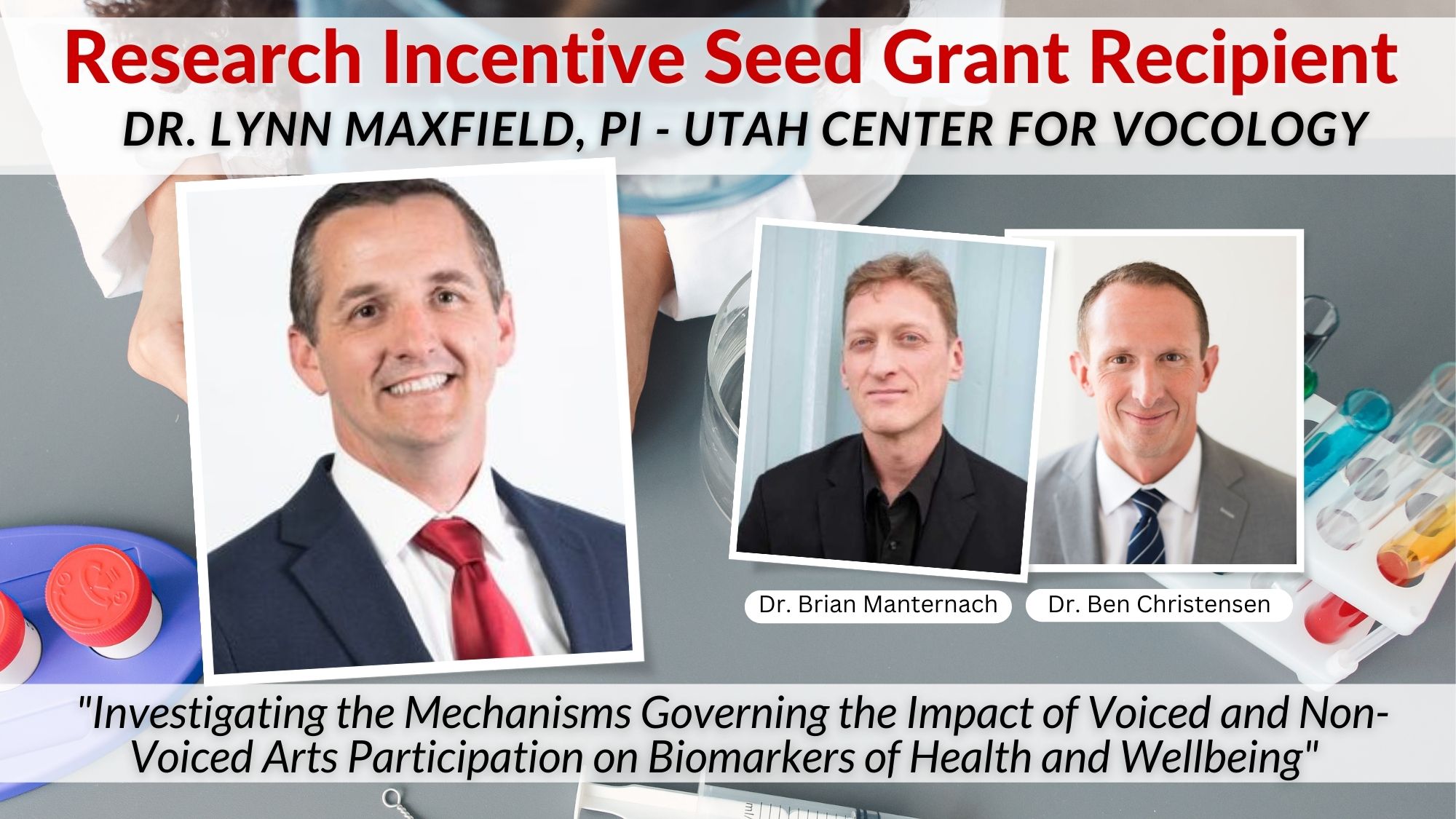UCV Awarded $43,000 Research Incentive Seed Grant
How much can a prick of blood, a sample of saliva, a heart rate or blood-pressure measurement tell us about the health benefits of making art? Investigators at the Utah Center for Vocology at the University of Utah will be learning more about the bio-markers of health connected to vocal and instrumental performing thanks to a recently awarded Incentive Seed Grant from the Vice President of Research and the College of Fine Arts.
 For those of us who have sung or played professionally or in a community chorus or
orchestra, danced at a club with hundreds of others or alone in our living room, most
of us can attest that we "feel better," "invigorated," or "part of something beautiful"
after the fact. Our mood changes. Our breathing is lighter. There are many ways that
performers of all ranks describe their altered state after coming out of the practice
room or off a stage.
For those of us who have sung or played professionally or in a community chorus or
orchestra, danced at a club with hundreds of others or alone in our living room, most
of us can attest that we "feel better," "invigorated," or "part of something beautiful"
after the fact. Our mood changes. Our breathing is lighter. There are many ways that
performers of all ranks describe their altered state after coming out of the practice
room or off a stage.
Dr. Lynn Maxfield, Director of the Utah Center of Vocology, has been working on voice research at the University of Utah for over a decade. During his tenure, Maxfield has overseen nearly $14M in federal grants made in support of various voice research projects at UCV (until 2020 under the name of National Center for Voice and Speech). "The UCV has always operated as an interdisciplinary research center. Historically we have had our basis in the health and physical sciences, with the results of our work having clear implications for the training of singing and other vocational and avocational voice users. What is so exciting about this grant is that it marks a turning point in this paradigm, where the basis for this work is in the practice of creative arts, with results having implications for the practice of integrative medicine."
For this project, the interdisciplinary nature continues with support from Dr. Ben Christensen, Research Assistant Professor in the Department of Surgery, who has previously collaborated with UCV on research related to nerve damage leading to vocal fold paralysis. Christensen will consult with the UCV team on biological specimen collection and analysis as well as interpretation of results.
Dr. Brian Manternach, Research Associate (UCV) and Associate Professor (Theatre), has been a part of UCV's team since 2019. As a voice pedagogue, an SVI-Trained Vocologist, and a prolific writer for voice journals and industry magazines, Brian will also support this project as key research staff, working directly with study subjects.
Manternach is intrigued by the variety of activities that are included in the project. "By examining singing, instrumental music, as well as acting, this study has an intentionally broad focus across the arts." The study will investigate potential differences between solo and group arts performance, and compare the health benefits of singing or playing in a rehearsal room alone versus the "higher stakes" of being in front of an audience.
Manternach explained that much of the existing research in this area of study to date is qualitative, relying on participants' self-reporting of how they feel before and after performance activities. The incorporation of the quantitative element of measuring endocrinological/biochemical markers may provide more exact data as to the specific areas of health and well-being that are most impacted during an individual's arts engagement.
There is also an important opportunity for UCV's future investigations in supporting the aggressive research growth goals of University of Utah President Taylor Randall and the importance of innovative, inter-departmental research collaboration. "With the University’s renewed emphasis on research at the intersection of art and health," Dr. Maxfield shared, "this project positions the UCV to make meaningful contributions to the college’s research portfolio."
About the Blog
Discussion channel for insightful chat about our events, news, and activities.
